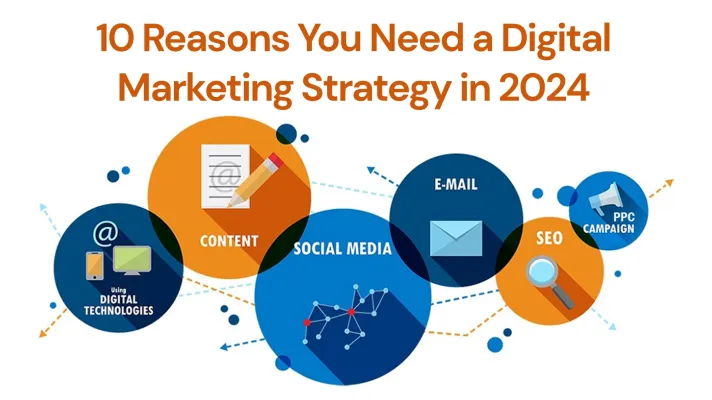
Bidding on branded keywords can be a potent tactic to attract relevant visitors to your website in the cutthroat world of competitive digital marketing.
Introduction
Bidding on branded keywords can be a potent tactic to attract relevant visitors to your website in the cutthroat world of competitive digital marketing. When executed properly, it may greatly improve your online presence and increase conversions.However, in order to maximize your efforts and steer clear of any hazards, it’s important to comprehend the dos and don’ts of bidding on branded keywords. In this article, we’ll look at the six fundamental rules for effective bidding on branded keywords.
Dos
Do Conduct Thorough Keyword Research
Before starting your branded keyword bidding campaign, it’s essential to conduct thorough keyword research. Identify the specific branded keywords that align with your business and target audience. Use keyword research tools to explore variations, search volumes, and competition levels. This research will help you uncover valuable insights and identify the most effective keywords to bid on.
Do Optimize Landing Pages for Relevant Keywords
To achieve maximum results, optimize your landing pages for the branded keywords you’re bidding on. Ensure that the content, meta tags, headings, and URL structures of your landing pages align with the keywords. This optimization will improve the quality score of your ads and increase their visibility in search engine results.
Do Create Compelling Ad Copy
Crafting compelling ad copy is crucial for attracting users’ attention and driving click-through rates. Focus on creating engaging headlines that incorporate your branded keywords. Highlight the unique value propositions of your products or services and include a strong call to action. Experiment with different ad variations and perform A/B testing to determine the most effective copy.
Do Monitor and Optimize Campaign Performance
Regularly monitor the performance of your bidding campaigns to identify areas for improvement. Monitor key performance indicators including click-through and conversion rates, cost per click, and cost per acquisition. Analyze the data to find patterns and details that can aid in your marketing. To maximize your return on investment, modify your bids, ad placements, and targeting parameters accordingly.
Do Leverage Ad Extensions
Ad extensions provide additional information and increase the visibility of your ads. Take advantage of ad extensions such as sitelinks, callouts, and structured snippets to enhance your ad’s relevance and attract more clicks. Use these extensions strategically to highlight specific features, promotions, or benefits of your products or services.
Do Test Different Bidding Strategies
Experiment with different bidding strategies to find the most effective approach for your branded keyword campaigns. Consider using manual bidding, automated bidding, or a combination of both. Test different bid adjustments based on factors such as device, location, or time of day. Continuously evaluate and refine your bidding strategies to achieve optimal results.
Don’ts
Don’t Engage in Trademark Infringement
When bidding on branded keywords, it’s crucial to respect trademark laws and avoid infringement. Do not use trademarked terms in your ad copy or landing pages without permission. Be aware of the specific guidelines and restrictions set by search engines and advertising platforms regarding trademark usage. Violating these rules can lead to legal consequences and damage your reputation.
Don’t Ignore Negative Keywords
For your adverts to be seen by the most appropriate audience and for filtering out irrelevant queries, negative keywords are crucial. Add to your campaigns any bad keywords you find that don’t relate to your goods or services. By doing this, you may raise the quality of your traffic and raise conversion rates.
Don’t Overlook Competition Analysis
Competitor analysis is a crucial aspect of bidding on branded keywords. Don’t overlook the importance of understanding your competitors’ strategies and positioning. Analyze their branded keyword campaigns to identify their strengths and weaknesses. This knowledge will enable you to differentiate your ads and optimize your bidding strategy for better results.
Don’t Neglect Ad Quality and Relevance
Search engines prioritize ads that are highly relevant and provide a positive user experience. Don’t neglect the quality and relevance of your ads. Ensure that your ad copy, landing pages, and offers align with the expectations of users searching for your branded keywords. This will improve your ad’s quality score and increase its visibility in search results.
Don’t Rely Solely on Branded Keywords
While bidding on branded keywords is essential, don’t rely solely on them for your advertising campaigns. Incorporate a mix of branded and non-branded keywords to diversify your targeting and expand your reach. This approach will enable you to capture new audiences and generate additional leads and conversions.
Don’t Set and Forget
Bidding on branded keywords requires ongoing attention and optimization. Don’t set up your campaigns and forget about them. Regularly review and refine your keyword lists, ad copy, and bidding strategies. Stay updated with industry trends and changes in user behavior to adapt your campaigns accordingly. Continuous monitoring and optimisation will guarantee that your bid strategies are successful and produce the greatest outcomes.
Frequently Asked Questions (FAQs)
Q: How can bidding on branded keywords benefit my business?
A: Bidding on branded keywords can benefit your business in several ways. By attracting targeted traffic to your website and capturing potential clients who are already familiar with your brand, it helps you enhance brand visibility. By blocking rivals from placing bids on your brand terms, it also enables you to keep a competitive edge.
Q: Should I bid on my own brand keywords?
A: Yes, it is strongly advised to bid on keywords related to your own brand. By doing this, you make sure that when people search for your brand, your adverts are among the top results. By doing this, you can keep messaging control, build your online profile, and attract more targeted visitors to your website.
Q: Can bidding on branded keywords be expensive?
A: Generally speaking, bidding on branded keywords is more economical than bidding on non-branded keywords. Branded keywords frequently have lower cost-per-click rates since they are highly relevant and have less competition. However, the cost can vary depending on your industry, the competitiveness of your brand terms, and the overall bidding landscape.
Q: Are there any risks associated with bidding on branded keywords?
A: While bidding on branded keywords can be highly beneficial, there are some risks to consider. One risk is the potential for competitors to bid on your brand terms, which can increase the cost of advertising and divert traffic away from your website. It’s important to monitor your campaigns regularly and take appropriate actions to protect your brand.
Q: How can I measure the success of my branded keyword bidding campaigns?
A: Track pertinent metrics like click-through rates, conversion rates, and return on ad spend to evaluate the success of your branded keyword bidding campaigns. To assess the effectiveness of your efforts, compare these indicators to your objectives and benchmarks. Additionally, monitor changes in brand awareness, website traffic, and sales attributed to your bidding efforts.
Q: Is it necessary to bid on competitors’ brand keywords?
A: Bidding on competitors’ brand keywords can be a strategic move, but it requires careful consideration. While it can help divert traffic from your competitors, it may also lead to legal and ethical implications. Ensure that you understand the rules and regulations regarding trademark usage and consult with legal counsel if necessary.
Conclusion
Bidding on branded keywords can significantly impact your digital marketing efforts, driving targeted traffic and increasing brand visibility. By following the six dos and don’ts outlined in this article, you can maximize the effectiveness of your bidding campaigns. Conduct thorough keyword research, optimize landing pages, create compelling ad copy, monitor and optimize campaign performance, leverage ad extensions, and test different bidding strategies.






